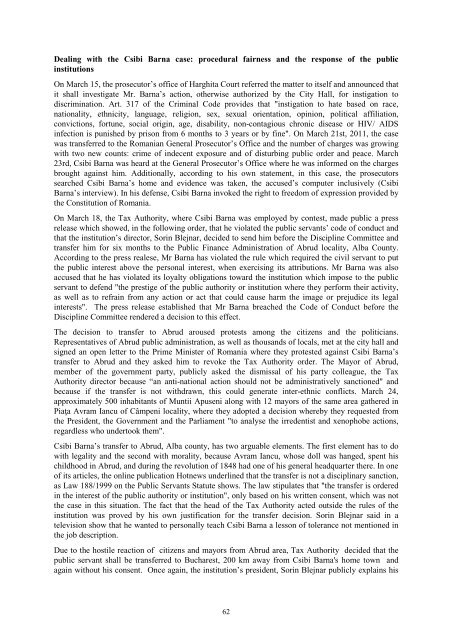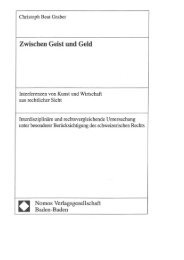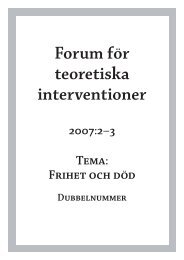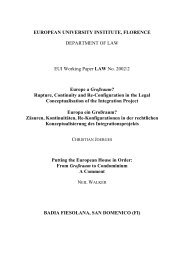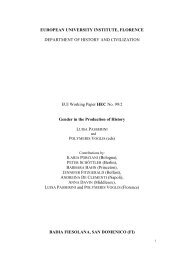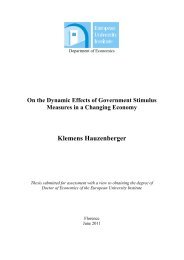Sinziana-Elena Poiana Ioana Lupea Irina-Madalina Doroftei Alina ...
Sinziana-Elena Poiana Ioana Lupea Irina-Madalina Doroftei Alina ...
Sinziana-Elena Poiana Ioana Lupea Irina-Madalina Doroftei Alina ...
Create successful ePaper yourself
Turn your PDF publications into a flip-book with our unique Google optimized e-Paper software.
Dealing with the Csibi Barna case: procedural fairness and the response of the public<br />
institutions<br />
On March 15, the prosecutor’s office of Harghita Court referred the matter to itself and announced that<br />
it shall investigate Mr. Barna’s action, otherwise authorized by the City Hall, for instigation to<br />
discrimination. Art. 317 of the Criminal Code provides that "instigation to hate based on race,<br />
nationality, ethnicity, language, religion, sex, sexual orientation, opinion, political affiliation,<br />
convictions, fortune, social origin, age, disability, non-contagious chronic disease or HIV/ AIDS<br />
infection is punished by prison from 6 months to 3 years or by fine". On March 21st, 2011, the case<br />
was transferred to the Romanian General Prosecutor’s Office and the number of charges was growing<br />
with two new counts: crime of indecent exposure and of disturbing public order and peace. March<br />
23rd, Csibi Barna was heard at the General Prosecutor’s Office where he was informed on the charges<br />
brought against him. Additionally, according to his own statement, in this case, the prosecutors<br />
searched Csibi Barna’s home and evidence was taken, the accused’s computer inclusively (Csibi<br />
Barna’s interview). In his defense, Csibi Barna invoked the right to freedom of expression provided by<br />
the Constitution of Romania.<br />
On March 18, the Tax Authority, where Csibi Barna was employed by contest, made public a press<br />
release which showed, in the following order, that he violated the public servants’ code of conduct and<br />
that the institution’s director, Sorin Blejnar, decided to send him before the Discipline Committee and<br />
transfer him for six months to the Public Finance Administration of Abrud locality, Alba County.<br />
According to the press realese, Mr Barna has violated the rule which required the civil servant to put<br />
the public interest above the personal interest, when exercising its attributions. Mr Barna was also<br />
accused that he has violated its loyalty obligations toward the institution which impose to the public<br />
servant to defend "the prestige of the public authority or institution where they perform their activity,<br />
as well as to refrain from any action or act that could cause harm the image or prejudice its legal<br />
interests". The press release established that Mr Barna breached the Code of Conduct before the<br />
Discipline Committee rendered a decision to this effect.<br />
The decision to transfer to Abrud aroused protests among the citizens and the politicians.<br />
Representatives of Abrud public administration, as well as thousands of locals, met at the city hall and<br />
signed an open letter to the Prime Minister of Romania where they protested against Csibi Barna’s<br />
transfer to Abrud and they asked him to revoke the Tax Authority order. The Mayor of Abrud,<br />
member of the government party, publicly asked the dismissal of his party colleague, the Tax<br />
Authority director because “an anti-national action should not be administratively sanctioned" and<br />
because if the transfer is not withdrawn, this could generate inter-ethnic conflicts. March 24,<br />
approximately 500 inhabitants of Muntii Apuseni along with 12 mayors of the same area gathered in<br />
Piaţa Avram Iancu of Câmpeni locality, where they adopted a decision whereby they requested from<br />
the President, the Government and the Parliament "to analyse the irredentist and xenophobe actions,<br />
regardless who undertook them".<br />
Csibi Barna’s transfer to Abrud, Alba county, has two arguable elements. The first element has to do<br />
with legality and the second with morality, because Avram Iancu, whose doll was hanged, spent his<br />
childhood in Abrud, and during the revolution of 1848 had one of his general headquarter there. In one<br />
of its articles, the online publication Hotnews underlined that the transfer is not a disciplinary sanction,<br />
as Law 188/1999 on the Public Servants Statute shows. The law stipulates that "the transfer is ordered<br />
in the interest of the public authority or institution", only based on his written consent, which was not<br />
the case in this situation. The fact that the head of the Tax Authority acted outside the rules of the<br />
institution was proved by his own justification for the transfer decision. Sorin Blejnar said in a<br />
television show that he wanted to personally teach Csibi Barna a lesson of tolerance not mentioned in<br />
the job description.<br />
Due to the hostile reaction of citizens and mayors from Abrud area, Tax Authority decided that the<br />
public servant shall be transferred to Bucharest, 200 km away from Csibi Barna's home town and<br />
again without his consent. Once again, the institution’s president, Sorin Blejnar publicly explains his<br />
62


